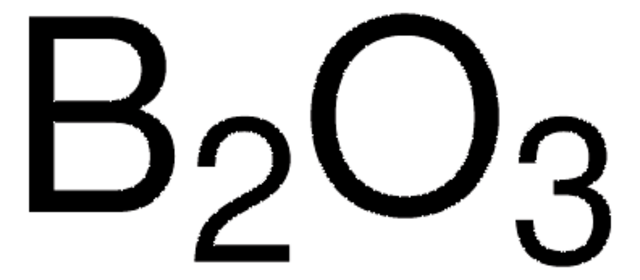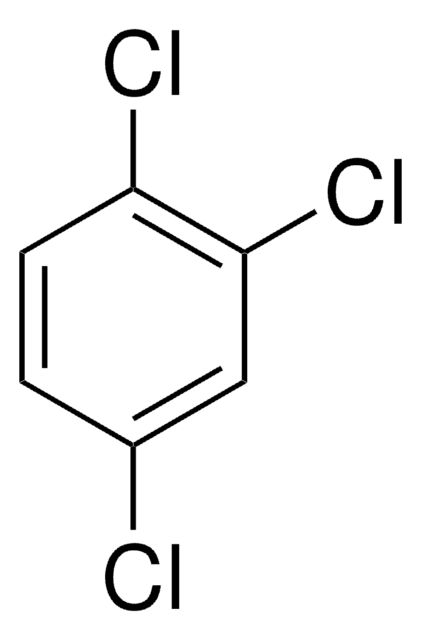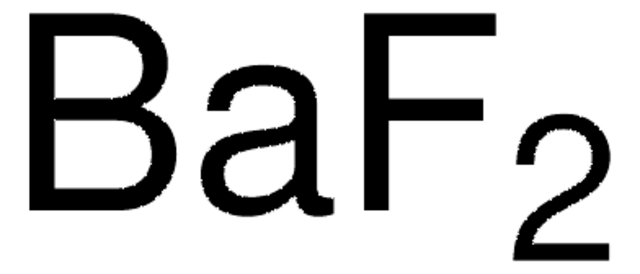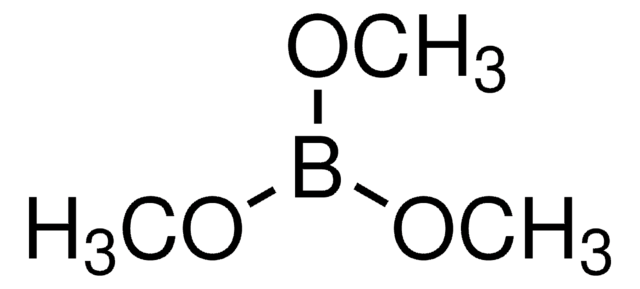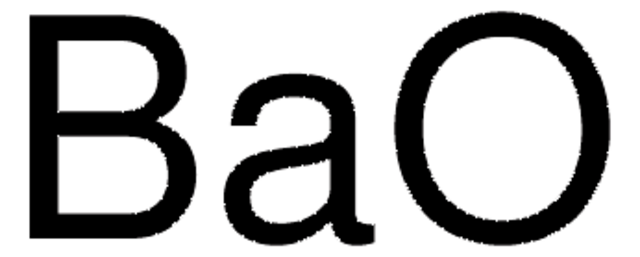202851
Boric anhydride
99.999% trace metals basis
Synonym(s):
Boron trioxide
About This Item
Recommended Products
vapor density
>1 (vs air)
Quality Level
Assay
99.999% trace metals basis
form
crystals or chunks
reaction suitability
reagent type: catalyst
core: boron
mp
450 °C (lit.)
solubility
ethanol: soluble at 20 °C
density
2.46 g/mL at 25 °C (lit.)
SMILES string
O=BOB=O
InChI
1S/B2O3/c3-1-5-2-4
InChI key
JKWMSGQKBLHBQQ-UHFFFAOYSA-N
Looking for similar products? Visit Product Comparison Guide
General description
Application
Packaging
Signal Word
Danger
Hazard Statements
Precautionary Statements
Hazard Classifications
Repr. 1B
Storage Class Code
6.1D - Non-combustible acute toxic Cat.3 / toxic hazardous materials or hazardous materials causing chronic effects
WGK
WGK 1
Flash Point(F)
Not applicable
Flash Point(C)
Not applicable
Personal Protective Equipment
Choose from one of the most recent versions:
Already Own This Product?
Find documentation for the products that you have recently purchased in the Document Library.
Customers Also Viewed
Our team of scientists has experience in all areas of research including Life Science, Material Science, Chemical Synthesis, Chromatography, Analytical and many others.
Contact Technical Service